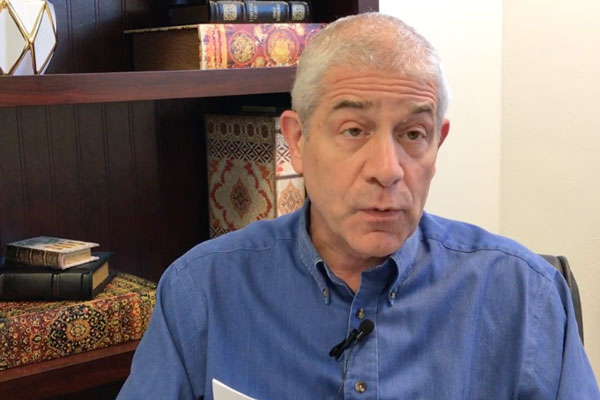In the spirit of Let’s #TalkAboutAphasia, the National Aphasia Association‘s nationwide aphasia awareness campaign, we wanted to do just that — talk about aphasia — but we also wanted to ensure the voices of people with aphasia were part of our conversation. Which is why we launched a video series called In Their Words: Aphasia Experiences.
In Al’s second video for our series, he discusses one thing that has helped him deal with aphasia: yoga! He talks about how when he’s on the mat, nothing else matters but that moment and that room. Aphasia fades away.
After he first had a stroke, Al said he couldn’t remember things like his children’s names and had a hard time speaking at all. He demonstrates what hard work and intensive therapy can do — as he reads from a statement he wrote. While every case of aphasia is different with different potential outcomes, we hope you are as inspired by Al’s story as we are.
If you haven’t already seen Al’s first video, you can watch Part 1 of our series where he talks about recovery homework and sending his first email with aphasia.
(Turn on closed captioning by clicking the CC button on the bottom menu and selecting English or scroll down for a transcript.)
Video Transcript
Al: But as I worked diligently to find the words I lost, I also discovered a few things, including, importantly, yoga, that will help me recover from the stroke, and in fact, help me discover who I am.
Yoga is a godsend to a still fragile person, out of the hospital and dropped again in a large world with aphasia. In yoga, in this room, there is no talking, and your world is now very small. Aphasia is temporarily gone. Your yoga mat is your boundary for the practice. Your entire world, for one hour, is all within that mat. It is all that there is. Your world is defined and small.
The lights are dimmed to help you focus inward. Unless you’re very new to yoga or just lost, there is nothing to learn outside of yourself, so you look inward. You’re connected to the mat. You focus only on your posture while you focus on the breath. If you’re able, you keep your eyes closed.
You’re in your world. For a while, you are not focused on aphasia. There isn’t the next word you need to watch before you say it. And in that more secure world, you’re completely, physically wrapped up in these athletic positions.
For a few moments, you’re in the moment. There is no past and no future. For me, yoga is a refuge for an hour, while I recover words and learn what “me” will become.
-END-
About the In Their Words Series
In the series, we ask our current and former clients and care partners to talk about their experiences with aphasia — the good, the bad, and the sometimes surprising.
The brief videos (3 minutes or less) are shot informally, and we asked our participants to communicate freely about aphasia from their perspective. Some opted to write and then read from their prepared statements. Others preferred more interview style-interactions for the videos.
Watch the whole series here:
In Their Words Playlist
Please help spread the word about aphasia — share these videos and help get the conversation started.
Are You Dealing with Language Loss After a Stroke?
To learn more about UMAP and what we might be able to do for you or your loved one, call (734) 764-8440 or email ucll@umich.edu to get the conversation started.

